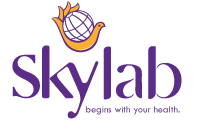No products in the cart.: ₹0.00
Empowerment and Equity: Celebrating International Day of Action for Women’s Health
Since 1987, people have observed the International Day of Action for Women’s Health to raise awareness of women’s sexual and reproductive health and rights.
Health organizations and women around the world observe this day annually to draw attention to the ongoing violence, coercion, and disrespect for women’s autonomy. In light of the fact that the COVID-19 pandemic has accelerated the deterioration of women’s rights protection, escalated the incidence of domestic violence, and exacerbated women’s poverty, this year’s day of action is especially significant. The International Day of Action for Women’s Health’s objective is to educate and raise awareness among women about their right to health in order to prevent a reversal of this vulnerable group’s sexual and reproductive rights.
The Sexual and Reproductive Health Rights Movement has several key themes.
- High-quality healthcare is available
- Legal and secure access to abortion
- Acquired immune deficiency syndrome (AIDS) and human immunodeficiency virus (HIV) in females
- Violence against women is a global health emergency.
- Teenagers have the right to sexual and reproductive health.
- The physiological autonomy and decision-making skills of women
Women’s fundamental right to corporeal autonomy grants them the ability to make decisions about their own bodies. The capacity of women to exercise informed judgment regarding their health is intrinsically linked to the societal roles they can assume; therefore, it is critical to attain gender equality. Women’s right to autonomy and responsibility regarding their bodies encompasses reproductive rights. In this regard, they are entitled to make decisions regarding their sexuality without fear of persecution, violence, or coercion.
Regrettably, the current proportion of women aged 15–49 who exercise autonomy over sexual relations, contraceptive utilization, and access to sexual health services stands at a mere 55%. As a result, nearly half of women in this age group lack the legal capacity to make decisions regarding their own sexual and reproductive health. In order to achieve complete physiological autonomy and exercise informed judgment regarding their health, women require access to the necessary knowledge, resources, opportunities, and competencies to effectuate such decisions. Facilitating women’s ability to make well-informed decisions is an effective strategy for improving their health and enabling them to reach their full potential as catalysts for positive transformation.
HIV is the human immunodeficiency virus.
HIV, a pervasive global health concern, exhibits its highest incidence among young women and adolescents aged 15–24. As of 2019, nearly half of all newly diagnosed HIV cases were women. The overall decline in new HIV infections among women indicates some progress in combating this epidemic, but the rate of advancement remains gradual and inconsistent.
An increasing number of women in Eastern Europe, Central Asia, Latin America, and the Middle East are being diagnosed with HIV. The epidemic has a disproportionate impact on women residing in Sub-Saharan Africa, where an estimated 4,500 adolescent girls and young women contracted HIV each week in 2019.
The persistence of power dynamics and unequal gender norms continues to hinder the capacity of adolescent girls and young women to mitigate the epidemic’s effects and increase their vulnerability to contracting the virus. For instance, policies and procedures that are discriminatory in nature, such as those pertaining to the minimum age of consent, impede the ability of young women to obtain sexual and reproductive health services. It is essential to empower and protect the rights of adolescent girls and young women in order to ensure their physiological autonomy, ability to utilize knowledge and skills to engage in safer sexual practices, and protection against HIV. Education regarding HIV for women is critical for this empowerment and is an immediate necessity, given that only one-third of women and girls possess a comprehensive understanding of the virus. Therefore, it is imperative that we expand the scope of efficacious interventions aimed at enhancing women’s access to reproductive health services and education regarding HIV.
Term abortion
The United States Supreme Court recently voted to reverse the landmark Roe v. Wade decision, which established the right to abortion. States throughout the United States implemented more than 300 restrictions on abortion in 2019. Among these, 14 states enacted extremely restrictive legislation that prohibited abortion after six weeks, which is oftentimes before the woman is even aware she is pregnant.
Numerous women are currently facing difficulties in obtaining the necessary abortion care as a result of the inconsistent assortment of abortion laws that impose limitations. As an illustration, the Introduction Targeted Regulation of Abortion Providers laws (TRAP laws) impose costly and medically superfluous requirements with the intention of compelling abortion clinics to cease operations. These stringent regulations impede women from accessing safe abortion services, thereby endangering their lives, as the numerous fatalities resulting from unsafe abortions attest. The brunt of this crisis falls on women of color, as prejudice erects obstacles to vital healthcare access. Anti-abortion organizations, for instance, frequently direct their rhetoric and stereotypes at women of color. Women of color not only face inferior health outcomes compared to white women, but they also have a documented history of experiencing coercion and lacking physiological autonomy when it comes to reproductive health decisions.
Assaults against females
Prior to the worldwide COVID-19 pandemic, one in every three women had experienced sexual violence at some point in their lives. Currently, the pandemic has further intensified the prevalence of violence against women, leading to a concerning surge in sexual, domestic, and various other forms of violence.
The confinement regulations have increased women’s exposure to violent family members, contributing to the rise in violence. In addition, some nations opted to reallocate funds from initiatives assisting women who have been victims of violence to relief efforts for COVID-19, a course of action that may have exacerbated the issue.
Despite the efforts of numerous organizations and charitable organizations to combat this worldwide health crisis, the incidence of violence against women continues to be alarmingly prevalent. Due to this inflation, increased expenditures in prevention and response to violence against women are more critical than ever.
Moreover, physical and sexual violence against women is entirely avoidable. In contrast to other health emergencies, such as infectious diseases, violence against women results from another individual’s decision-making process. Therefore, we must actively combat violent acts against women and foster a society that truly values and respects women’s rights on par with men’s. There is, nevertheless, no straightforward method to accomplish this. Effectively preventing violence against women necessitates a multifaceted strategy encompassing government intervention, investment in women’s organizations, enforcement of equality-promoting legislation, and a resolute confrontation of all forms of discrimination against women.
To conclude,
The International Day of Action for Women’s Health is an occasion to highlight the worldwide lack of regard for the autonomy of women, the prevalence of violence, and discrimination. Individuals in their immediate social circles, as well as the economic and political frameworks in our communities, influence the provision of secure spaces and autonomy for women. As routine violations of women’s rights, particularly sexual and reproductive rights, persist on a global scale, it is critical to advocate for sexual and reproductive justice and oppose any attempts to regress.


